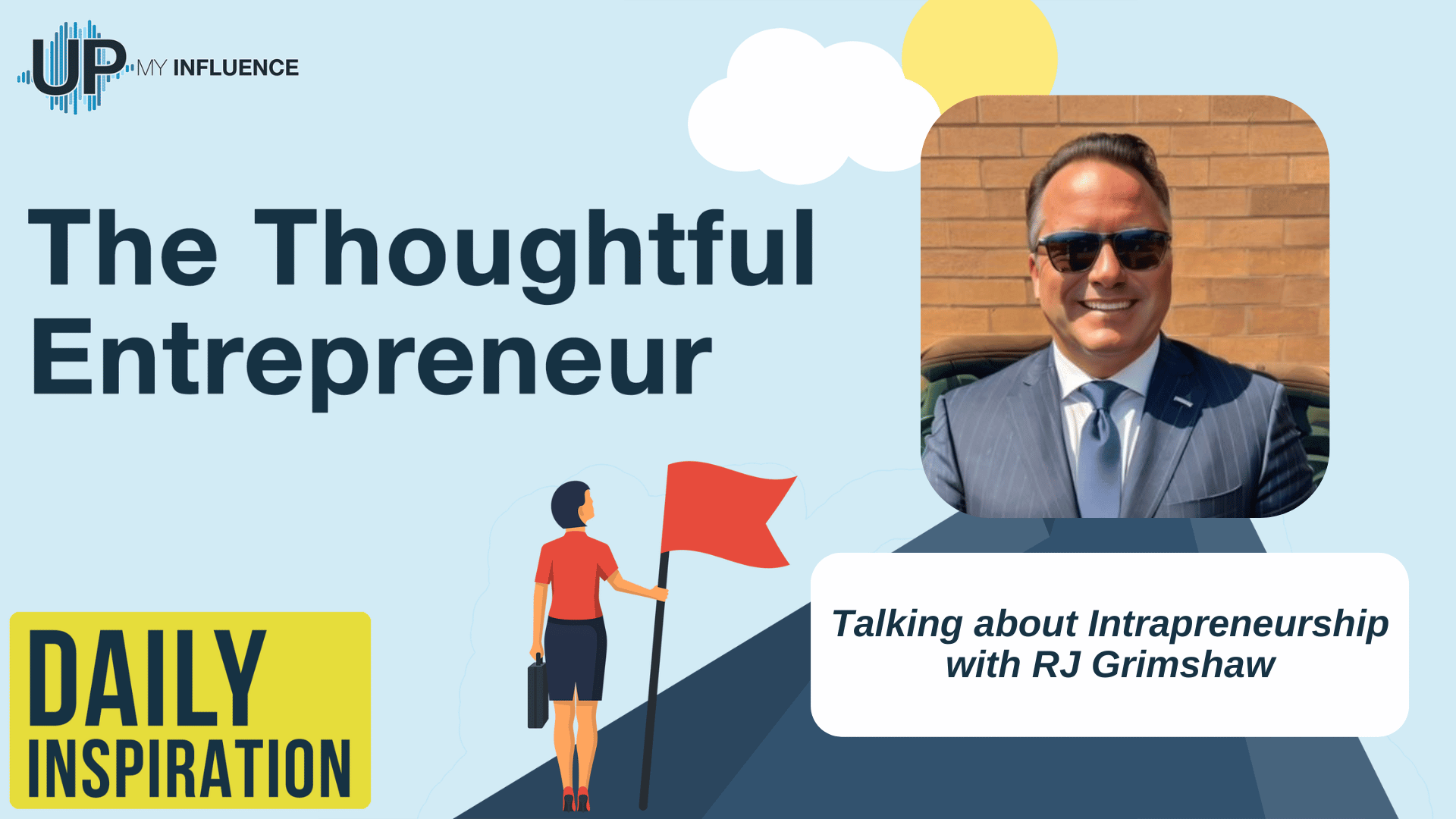THE THOUGHTFUL ENTREPRENEUR PODCAST
In this episode of the Thoughtful Entrepreneur, your host Josh Elledge speaks to the Business Investor of UniFi Equipment Finance, RJ Grimshaw.

RJ Grimshaw's story is nothing short of remarkable. He successfully grew a business from a modest $13 million to an impressive $150 million sales. But what's truly inspiring is his unwavering commitment to fostering an entrepreneurial culture.
RJ believes aligning employees with the company's vision and mission is beneficial and essential for substantial growth. He highlighted the importance of identifying and nurturing entrepreneurs within a company.
RJ shared that a long-term commitment is the key to creating a culture of entrepreneurship. It's about encouraging employees to share their ideas and take calculated risks.
He provided practical strategies for leaders, such as setting up formal programs to track and implement employee ideas, creating dedicated communication channels for idea submissions, and identifying and empowering champions of the entrepreneurial operating system.
According to RJ, Recognizing and celebrating entrepreneurial employees' contributions is vital. It boosts their engagement and commitment, creating a positive feedback loop and encouraging others to step forward with their ideas. This recognition can profoundly impact the overall morale and innovation within a company.
RJ addressed the challenge of engaging employees who may prefer to follow instructions over disrupting the status quo. He suggested a balanced approach, where the majority focus on functional tasks, but a significant portion—20%—is encouraged to innovate and drive change.
Key Points from the Episode:
- Importance of fostering an entrepreneurial culture within organizations
- Identifying and nurturing entrepreneurs within the company
- Soft skills essential for driving innovation and growth
- Strategies for evoking a culture of entrepreneurship within organizations
- Recognizing and empowering entrepreneurial-minded individuals
- Encouraging participation from employees inclined towards following instructions
- Balancing functional tasks with driving innovation and change
- Nurturing soft skills such as ownership mentality, continuous learning, passion, and willingness to take calculated risks
- Practical advice for leaders to create a culture that supports entrepreneurialism
- Value of including entrepreneurial mindset on resumes and job descriptions
About R.J Grimshaw:
RJ Grimshaw, the ex-President and CEO of UniFi Equipment Finance until October 2023, orchestrated a remarkable transformation during his tenure, elevating the company's revenue from $13 million to an impressive $150 million.
His extensive experience includes key leadership roles at EverBank and Key Equipment Finance. RJ served as the treasurer on the Equipment Leasing Finance Association board. As a distinguished author, his work “ABLE LEADERSHIP” establishes him as a leading authority in intrapreneurship, sales, and leadership.
RJ's strategic vision and impactful leadership have left an indelible mark on the financial landscape, reflecting his prowess in steering organizations towards substantial growth and success.
About UniFi Equipment Finance:
UniFi Equipment Finance, formerly Ervin Leasing, stands out as a distinguished provider of commercial equipment leasing services. Renowned for its superior service and commitment to integrity, UniFi offers a diverse range of lease plans covering virtually all types of commercial equipment.
With a history dating back to 1978, the company has been a dedicated member of the Equipment Leasing and Finance Association (ELFA), showcasing its longstanding presence and commitment to industry standards.
In January 2013, UniFi underwent a significant development as it was acquired by the Bank of Ann Arbor, a community bank serving Washtenaw and Western Wayne counties.
This strategic alliance with the bank has infused substantial liquidity and positioned UniFi for projected growth. Both entities share a mission of quality service, a robust credit culture, and a collective commitment to community development.
Apply to be a Guest on The Thoughtful Entrepreneur:
https://go.upmyinfluence.com/podcast-guest
Links Mentioned in this Episode:
Want to learn more? Check out UniFi Equipment Finance website at
Check out UniFi Equipment Finance on LinkedIn at
https://www.linkedin.com/company/unifiequipmentfinance/
Check out RJ Grimshaw on LinkedIn at
https://www.linkedin.com/in/rjgrimshaw/
Check out RJ Grimshaw on Instagram at
https://www.instagram.com/rj_grimshaw/
Check out RJ Grimshaw on Twitter at
More from UpMyInfluence:
We are actively booking guests for our The Thoughtful Entrepreneur. Schedule HERE.
Are you a 6-figure consultant? I’ve got high-level intros for you. Learn more here.
What is your #1 Lead Generation BLOCKER? Take my free quiz here.
Want to learn more about all the podcasts managed by UpMyInfluence? Opt in here.

